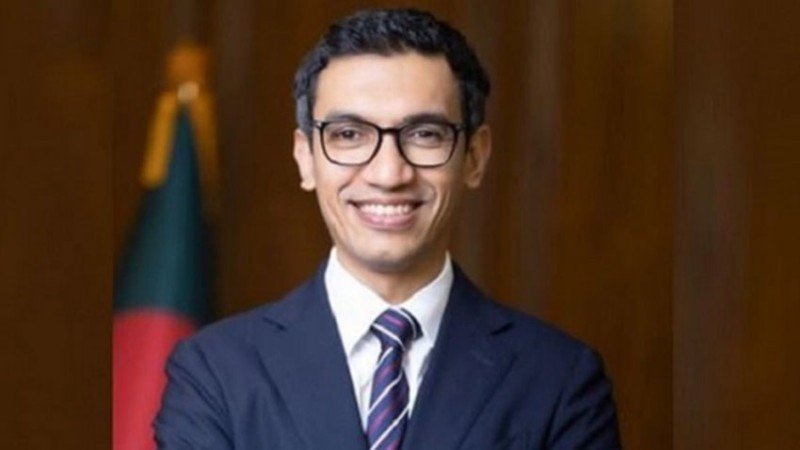
Executive Chairman of the Bangladesh Investment Development Authority (BIDA) and Bangladesh Economic Zones Authority (BEZA), Ashik Chowdhury, has published a detailed report summarizing his first eight months in office.
The report addresses public questions about foreign direct investment (FDI) and reforms undertaken during the interim government period.
Chowdhury, who assumed leadership of BIDA in September 2024 and of BEZA shortly thereafter, posted the update on his verified social media channels on June 6 under the title “Our Performance Report”. The post responds to a formal request for transparency regarding BIDA’s activities, raised by political leaders and civil society.
“Please verify information from trusted sources. Do not fall victim to misinformation. Ask us — we will strive to respond,” Chowdhury urged in his statement.
3 Focus Areas
Chowdhury’s update outlines progress in three strategic areas:
A) Improving the Investment Climate (Policy & Execution)
BIDA and BEZA identified 30 priority actions to enhance Bangladesh’s investment ecosystem. According to the report:
1. 18 initiatives are ahead of schedule.
2. 7 initiatives are on track.
3. 5 initiatives are behind schedule.
Progress is shared bi-monthly with investors through public State of the Investment Climate webinars.
Key reforms include:
1. Prioritization of 5 economic zones with dedicated infrastructure roadmaps (power, gas, water, and logistics).
2. Monthly inter-ministerial coordination meetings to address business challenges.
3. Launch of a dedicated investor support team for resolving critical issues.
4. Public performance reporting for BIDA’s One Stop Service (OSS) portal.
5. Creation of a Foreign Direct Investment (FDI) Heatmap and a dedicated Semiconductor Task Force.
6. Simplification of foreign currency loan processes.
7. Port efficiency enhancements and free trade zone development.
8. Implementation of a streamlined Starter Pack for new business registrations.
9. Institutional modernization of BIDA and BEZA, including paperless operations and improved workplace facilities.
10. Communication and branding improvements, including a redesigned website and enhanced social media presence.
B) Investor Aftercare & Policy Advocacy
BIDA has actively engaged with both domestic and foreign investors to resolve operational and regulatory issues.
Notable cases addressed include:
1. Youngone Group
2. MetLife
3. Chevron
4. Lafarge
5. Bangladesh Automobiles
Policy advocacy work has included:
1. Reform of bonded warehouse licensing.
2. Reduction of import duties for man-made fiber components.
3. Simplification of tax clearance processes for incentives.
Chowdhury emphasized that existing investors are key ambassadors for Bangladesh’s investment climate and their experiences will shape future FDI flows.
C) Building a Strong Investment Pipeline
Historically, Bangladesh did not systematically track or manage its investment pipeline. Under the new approach:
1. BIDA organized two high-level investment summits, including a China-focused summit.
2. 675 investors participated.
3. 300+ bilateral business meetings were held between domestic and foreign investors.
4. 3 new investment deals (~$300 million combined) have already been confirmed, creating an estimated 10,000 new jobs.
5. 15 additional projects are under negotiation and expected to close in the coming months.
Chowdhury reiterated that attracting billion-dollar investments is a long-term process: “At global investment summits, no one spontaneously signs a $100 million check — the pipeline takes time to build and mature.”
A Balanced View on FDI Flows
Chowdhury noted that Bangladesh’s FDI inflows from October to April remained stable compared to the previous year, despite significant political and economic headwinds.
He credited broader macroeconomic stabilization — such as improvements in foreign reserves and exchange rate stability — as key factors behind the recovery.
“This is encouraging, but BIDA neither claims full credit nor responsibility for national FDI figures. Our role is to create an enabling environment and ensure that Bangladesh remains competitive in a challenging global landscape.”
In closing, Chowdhury called for a fact-based public discourse on FDI and investment reforms: “Please seek information from verified sources. We are ready to answer questions transparently. There is much more to do — we are only getting started.”
 Weekly Bangla Mirror | Bangla Mirror, Bangladeshi news in UK, bangla mirror news
Weekly Bangla Mirror | Bangla Mirror, Bangladeshi news in UK, bangla mirror news







